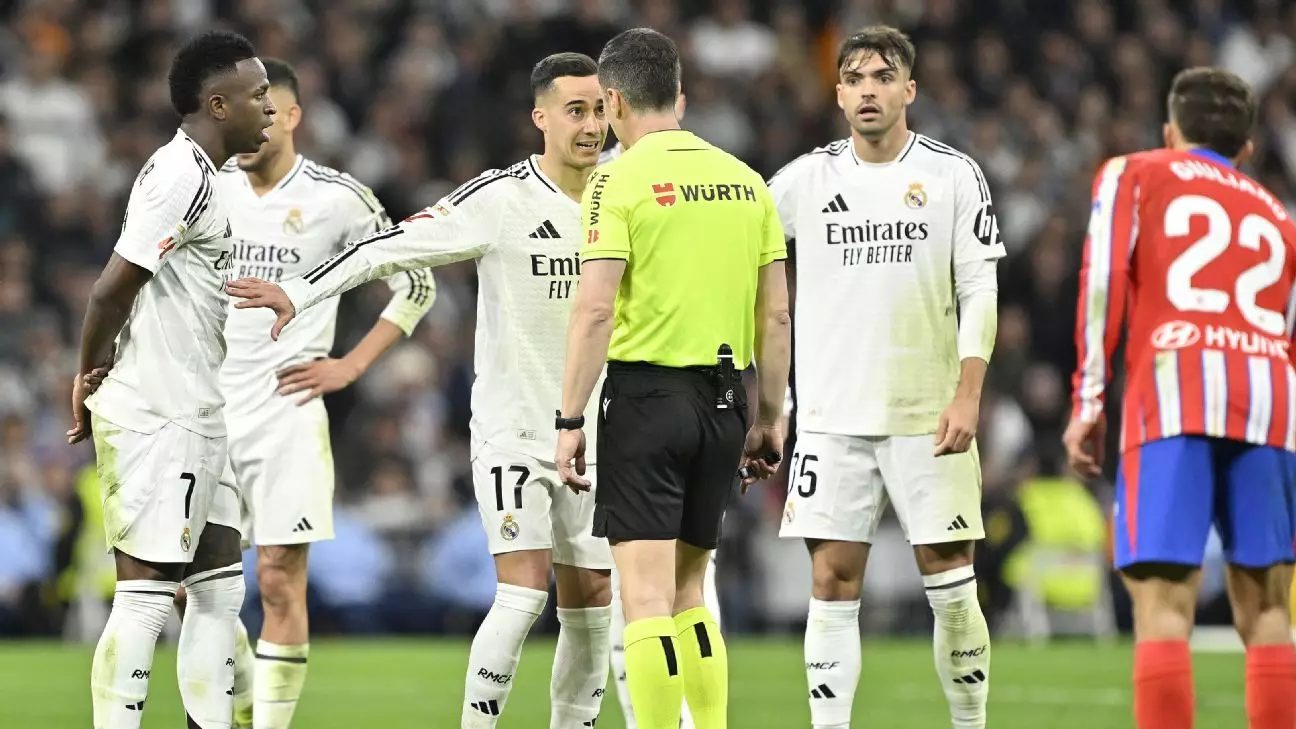In the heat of the Madrid derby, emotions ran high as controversial decisions left both teams grappling with differing views on justice in football. Carlo Ancelotti, manager of Real Madrid, voiced his frustration regarding the penalty awarded to Atlético Madrid, firmly stating that “football people don’t understand” such calls. This remark points to a deeper rift between coaches, clubs, and the ever-evolving regulations governing the sport. The penalty, awarded in the 35th minute when VAR intervened and judged Aurélien Tchouaméni to have fouled Samuel Lino, sparked a discussion that transcended the match itself—a reflection on the state of officiating and its impact on the beautiful game.
Emotional Resonance and Tactical Insights
The 1-1 draw not only had implications on the league standings, with Real Madrid maintaining a narrow lead over their fierce rivals, but also served as a microcosm of the broader tensions within LaLiga. Ancelotti’s initial reluctance to comment on the penalty suggests a tactical awareness; emotions can easily overshadow critical analysis in such high-stakes matches. He later provided a nuanced view, indicating that despite his team’s dominance in the second half, the psychological impact of the penalty affected his players’ morale. He believed that Real Madrid had exhibited control and offensive prowess, particularly in the latter stages of the game, which complicates the narrative surrounding the officials’ decisions.
Diego Simeone, Atlético Madrid’s head coach, adopted a contrasting viewpoint regarding the officiating. Despite acknowledging that the referee endeavored to make balanced decisions, his comments highlight how subjective interpretations of fouls can evoke passionate debates. Péruvian referee César Soto Grado faced scrutiny for his calls throughout the match, particularly the yellow card shown to Real’s Dani Ceballos. Simeone’s assertion that opinions diverged on whether Ceballos deserved harsher punishment speaks to the perennial challenge referees face in maintaining consistency amid the intensity of derby matches.
As the match reverberates through social media and the sports community, the sentiments expressed by Ancelotti and Madrid’s recent open letter for structural reform in officiating gain traction. The call to action emphasizes the need for a review system that not only holds referees accountable but also addresses the dissatisfaction of clubs questioning officiating integrity. Madrid’s complaints stem from a series of contentious decisions, which resonate with a broad spectrum of teams in LaLiga, including Atlético, suggesting a league-wide sentiment that could push for much-needed changes.
As LaLiga progresses, the significance of this derby extends beyond mere standings; it acts as a litmus test for the relationship between clubs and match officials. The concerns raised by both coaches highlight an urgent need for dialogue and transparency in governance practices surrounding refereeing. In an era where technology such as VAR aims to enhance fairness, the ongoing debates remind us that the human element in officiating will always remain a pivotal part of the game, triggering discussions that shape the future of football itself. As both teams prepare for their next fixtures, one can only hope that the lessons learned will lead to an improved atmosphere not only for players and coaches but also for the passionate fans who live and breathe this sport.

